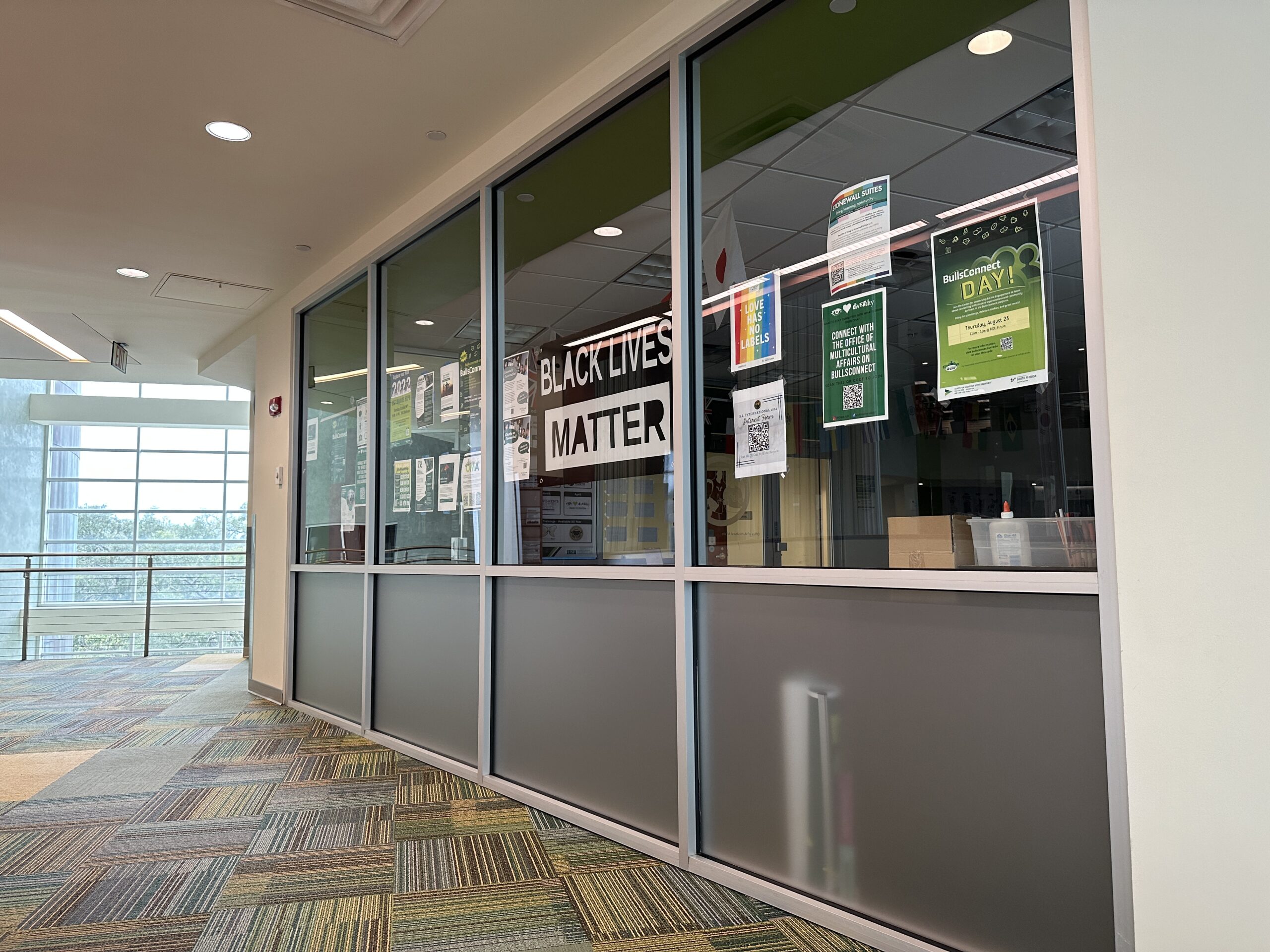Faculty: Removal of diversity initiatives will have negative effects on university communities

The potential elimination of diversity, equity and inclusion (DEI) efforts throughout Florida’s public universities could result in losses in students’ success and their ability to excel in a transnational context, according to special advisor to the College of Arts and Sciences Dean on DEI (SADEI) Tangela Serls and Middlebury College vice president for DEI Khuram Hussain.
Gov. Ron DeSantis announced he would defund all DEI and critical race theory (CRT) initiatives in a Jan. 31 press conference, following requests to the state’s public universities to detail their DEI and CRT-related spending.
Hussain said because DEI functions as a primary point of contact between students with disabilities and the university, it ensures that students are able to access accommodations needed for their learning. Removing DEI offices would then have an impact on the positive gains made to support student success, according to Hussain.
“DEI offices are designed to support the capacity of students and professionals to fully participate in what higher education has to offer,” Hussain said. “Why would anyone who really understands what DEI offices aim to do want to curb this affirming work?”
Students won’t be prepared to perform in a global society, according to Serls. She said they will be less informed, less empathetic and less appreciative of differences across humanity.
Serls said faculty will also be affected, however, as they might run the risk of losing funding from national and international grantors who value DEI. Grantors who might think particular projects can no longer be carried out thoroughly due to state policies will cause faculty to lose out on funding, she said. In the long run, she said it might become difficult to recruit and retain talented faculty.
It is still unknown what state policies might mean for DEI practitioners, according to Hussain. A Feb. 7 universitywide email from President Rhea Law announced that the search for a new vice president for DEI had been halted due to the uncertainty surrounding DeSantis’ proposals and investigations regarding DEI efforts.
Serls said those working in DEI won’t have the benefit of having an executive leader now that the search has been canceled. Without a leader’s vision and guidance, it will be more difficult to continue the work, she said.
When it comes to funding, the effects will be felt at different degrees throughout different offices, according to Serls. For example, Student Support Services (SSS) is a federally funded grant program which does not receive state funds and is less likely to be affected, according to SSS Director LaTosha Thomas.
“If funding for particular offices is coming from places other than the state, certain areas may have a little more flexibility during these times, but I’m not sure how long that will last,” Serls said.
USF reported the most DEI and CRT related spending, totaling $8.7 million, in an investigation by DeSantis. The university funded areas such as the Office of Multicultural Affairs (OMA), Upward Bound, SSS, Institute on Black Life and its own DEI office.
However, those working on DEI are collectively experiencing a type of psychological trauma navigating new state policies which can’t be understated or ignored, according to Serls. People might also be scared to speak up, she said.
“I believe people are terrified, and I can’t blame them because our livelihoods are at stake. In fact, I almost passed on the opportunity [to speak with The Oracle], but I decided that I needed to be brave,” Serls said.
The OMA, DEI office and Institute on Black Life declined to comment upon The Oracle’s request.
USF will continue to work with the governor on the state’s higher ed initiatives, according to Director of Media Relations Althea Johnson.
Hussain said those who work in DEI focus on the creation of sustainable solutions to issues of interpersonal harm that arise on campus, and the absence of this could lead to a community that is less safe, respectful and capable of sustaining inclusive learning.
“For generations, we have looked to higher education to revitalize and inform democratic life – to do so, educators and administrators need the space to cultivate independent, broadminded and critical thinking,” he said.
“At its core, DEI aims to advance these principles for all students and education professionals – to understand ourselves and our world in expansive and inclusive ways. If we silence advocates of transformative learning, we ultimately curb earnest and effective efforts to prepare students for democratic life.”








